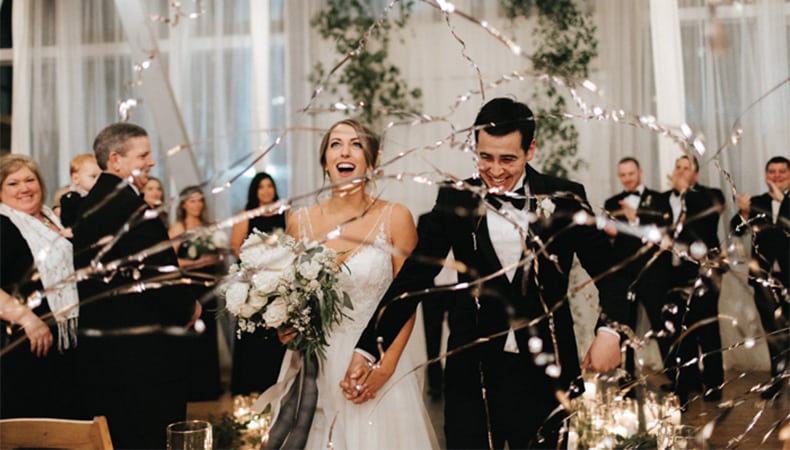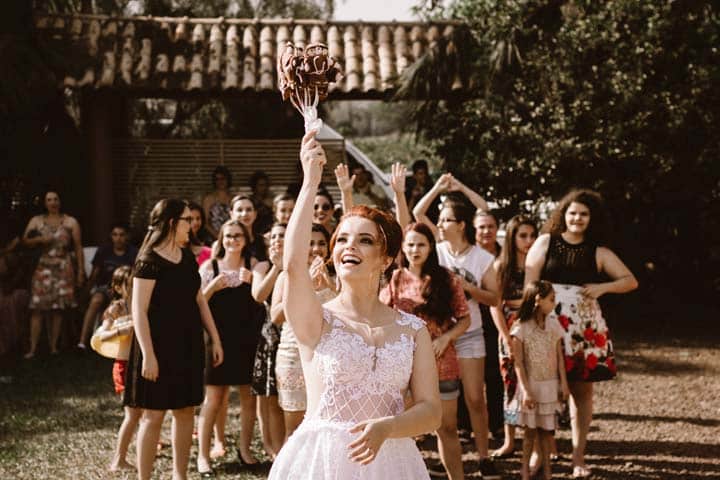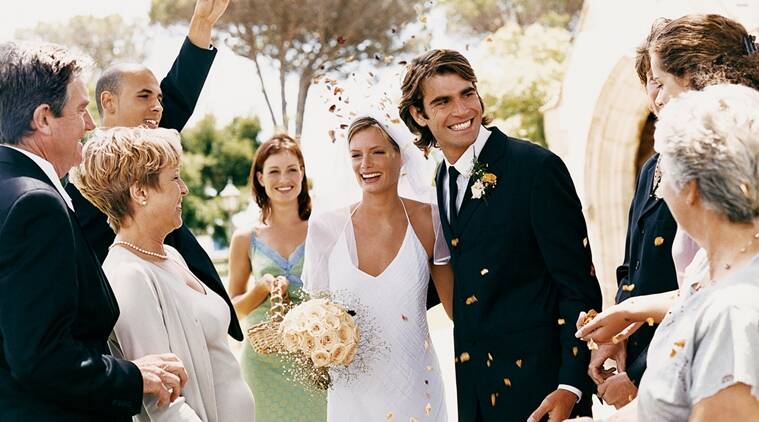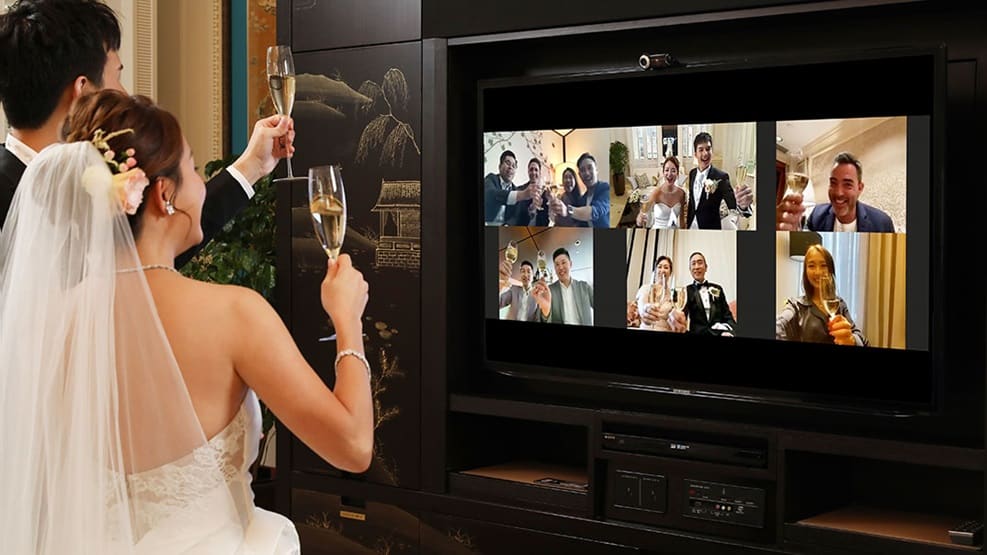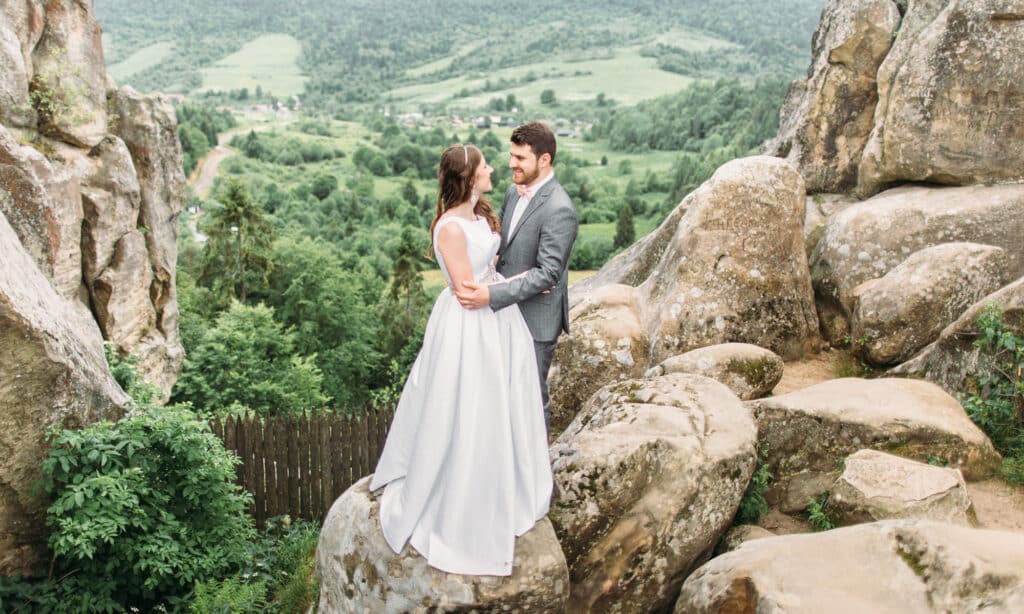Destination Weddings Spice Up the Event
The process of planning for a wedding can be both exciting and a little scary. Many happy couples know where they want to have the wedding even before the question is officially popped. While some brides and grooms choose a local church, their mom’s backyard, or even a venue that’s famous for being over the top, some couples want to travel and get married in a destination ceremony.
Traveling to a wedding can mean that certain things are different from a traditional wedding, such as the guest list, the available digital options to attend, and even the gift registry.
There are Many Location Options for Destination Weddings
Many brides choose a destination wedding because they want to get married in a place that they love to vacation at, in a place that they’ve always wanted to visit, or they want their wedding to feel like a vacation for both themselves and their guests. Some couples choose to get married on cruise ships, some at exotic resorts, and others just want to go to a place that’s special to their family.
When planning a destination wedding, step one is to pick the place. Beaches, amusement parks, national forests, and exotic rain forests are just a few of the thousands of options to consider. If a couple is unsure of where they want their big day to be, picking the spot can be a lot of fun. The place may help determine the wedding date, as wedding hot spots usually book early and there may only be a few available wedding dates to choose from. For those eyeing a serene coastal affair, consider venues like The Lodge Hotel Gulf Coast, which could offer a picturesque backdrop with its blend of luxury amenities and scenic vistas, ensuring a memorable celebration by the sea.
When choosing a suitable location, a couple may choose a location based on sentimental value. For instance, if a couple got engaged on a wine tasting tour, it might only be fitting to have their wedding attached with wine somehow. And one great example is having their wedding venue in the Adelaide Hills, which is famous for its vast wine options.
The Time of Year Makes a Big Difference
Once the location has been chosen, it’s important to consider the time of year that the wedding will take place. While July in Texas is hot and around a hundred degrees Fahrenheit, July in Saint Petersburg, Russia can be in the sixties. A couple should keep the time, temperature, and seasons in mind when planning the big day. Doing so will allow them to plan better.
For example, bridesmaids in tiny bridesmaid dresses may be freezing on the beach in December, or certain locations may pour and flood three months out of the year. So, by taking the seasons in mind, you’ll know the best materials for your and your guests’ outfits. Indeed, planning for the correct weather of the location for the wedding date can help the big day go smoothly. The couple will know if they need tents in case of rain, sweaters in case of snow, or a backup plan in case of a hurricane during hurricane season in Florida.
What to Wear for the Big Day?
While the happy couple can wear anything they choose, keeping the suggestions above in mind while choosing a dress or a tuxedo can help the couple feel more comfortable. If the bride finds her perfect dream dress and it just doesn’t fit the weather, she may consider a second dress or wedding outfit to change into once the actual ceremony is complete. The choice in all the bridal party outfits should be able to match the wedding theme for a cohesive look generally. That’s why many couples with larger budgets choose to change into different clothes for different events at the wedding, such as a more comfortable outfit for hitting the dance floor.
In this day and age, no one bats an eye when the bride changes from the dress she bought for the ceremony and photos to pants later on in the evening. Some couples even keep a spare outfit on hand just in case they spill something or decide that they are uncomfortable.
Who to Invite?
Each location venue will have a specific number that the couple may invite. While a large outdoor open area may hold an unlimited amount of people, a small intimate setting may only hold ten guests. It’s important to find out how many people can fit in the space and if any current rules and regulations are governing social gatherings such as weddings.
Due to current social distancing regulations, even many large outdoor spaces are limiting guests to very small numbers. The happy couple must keep those numbers in mind while deciding who should be invited. If both people have a long list of people they want to come but space is limited, it’s only fair that the available spots be split in half between the two people. This can also be a good time to practice some marriage compromise.
If available guest spots are limited, it’s okay to have a list of people that must be invited and a list of guests that will be invited if people from the first list are unable to attend. For example, if an aunt and uncle on the first list cannot come and RSVP as a no, one could then invite a couple from the second list. If that couple can’t come as well, the next couple would then be invited. Invites would need to go out early and guests would need an early RSVP date so that all spots could be taken and secured before the big day.
The List of Those Attending May Be Smaller
It’s important to note that a destination wedding may mean fewer guests attending the big day. Obviously, there is less travel involved for guests with a local wedding. A destination wedding can mean that guests have to drive a far distance, fly, or even boat to the wedding location. While some guests may be more than excited to go on a mini-vacation to watch the happy couple tie the knot, others may not be able to get time off from work or they may not be able to swing the trip financially. The choice in all the bridal party outfits should be able to match the wedding theme for a cohesive look generally. That’s why
It’s important to remember that not everyone can travel and to not take it personally when a guest returns an RSVP card that states they won’t be able to attend. Even guests who won’t be attending will likely still send a gift from the registry.
Virtual Attendees May Be an Option
In the past, a person needed to be at the wedding to see it live, but thanks to today’s technology there are ways to have guests attend the wedding virtually. Video streaming and digital services such as Zoom allow people to watch weddings, births, and graduations live from anywhere on Earth. If guests either can’t attend in person, consider adding a virtual option for them to still “attend” and take part in the big day.
If you choose to add an option for some of your guests to attend virtually, you should take the necessary steps to facilitate this. Get someone to help in showing your virtual guests around. Involving them in both the ceremony and reception will keep them interested to the end.
You can choose to send your virtual guests some drinks that will be used during the toast. All these steps will make them feel closer to you despite the distance.
Registering for Gifts in the Digital Age
In the past, the happy couple would have to go to a store in person and scan items they wanted to receive with a handheld scanner. Their guests would then go to the store, print out the list, and shop for the couple using a printout as a guide. The bride would then have to go to the store and print the list herself to get a sneak peek at what items had already been purchased and which items still showed up as available or needed on the list.
These days a bride can register online, the guests can shop online, and gifts can be mailed directly to the happy couple’s home. This is great for destination weddings, as typically there isn’t a big gift table like there would be at a traditional local wedding. The guests don’t have to worry about traveling with the gifts and them getting lost by the airline. The couple does not have to worry about traveling home with several suitcases of items they received at their wedding.
Consider Registering for Destination Experiences
Many couples who are planning a destination wedding choose to skip registering for cutlery and crockpots and instead register for travel and destination experiences. For example, guests can purchase things like “two tickets for the happy couple to see a dinner show” or “a gift card to the amusement park the couple is visiting the day after the ceremony.”
If the couple is registering for more costly travel-related expenses, such as first-class flights to the big event or a honeymoon cruise, making it where guests can donate any dollar amount, they choose towards the item may make it more affordable for guests. Guests are also more likely to pitch in their smaller gift amounts towards big things if they don’t have to cover the entire cost of the big item.
A destination wedding is fun and exciting for both the couple and the guests. Everyone gets to travel and take a vacation, and perhaps experience a season completely opposite from the one that they are experiencing at home. While everyone on the list may not be able to attend, there are virtual options that can make it possible for anyone who wants to see the wedding live to do so.
Even though the wedding may be halfway across the globe, virtual registries in this day and age make it possible for couples to receive the items they need without the couple or the guest having to leave their homes. Some guests may even decide to help fund the excitement on the trip or pay for trip basics, like flights, food, and souvenirs. A destination wedding is different from a traditional wedding, but it’s different in a good way and can be much more exciting for all involved.


